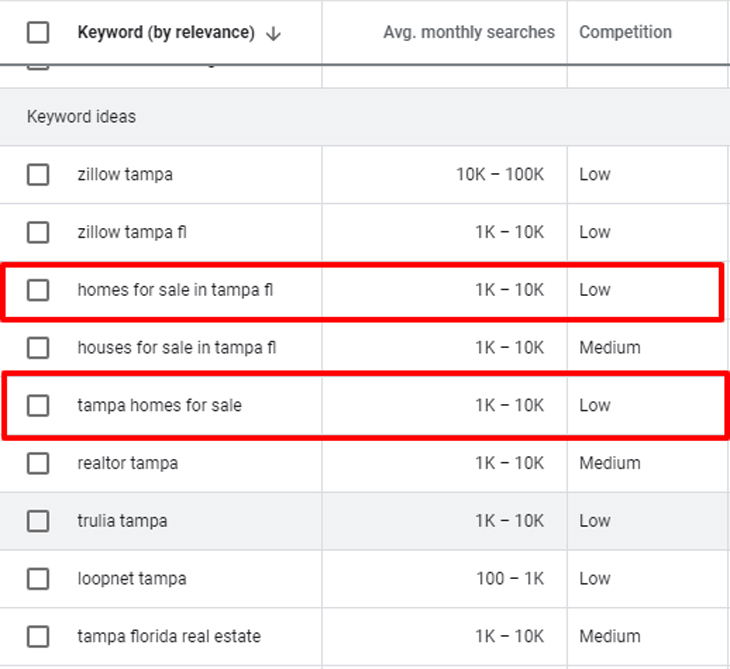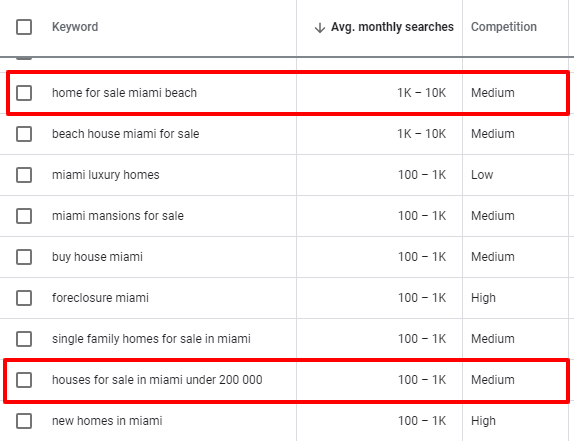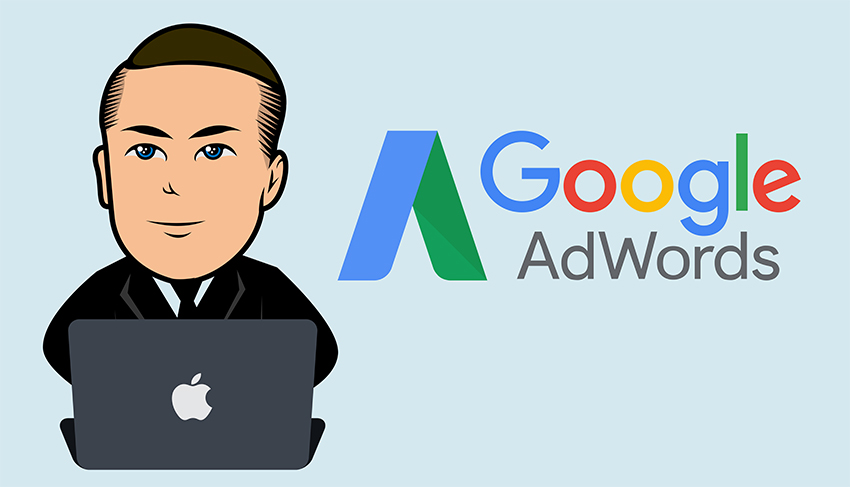Google Ads is an extremely powerful tool that provides a fantastic way to attract leads and convert them into clients. But like any power tool, you need to know how to use it in order to avoid injury. Find out how in this article.
Industry Insights
A few years ago, we wrote The Beginner Guide To Google Adwords (now called Google Ads) for real estate marketing. We did so because one of the most common questions we got asked (and still get asked) is if Google Ads is a good option for real estate, and if so, what’s the best way to use it.
While we put a lot of emphasis on content marketing in this blog, we also wholeheartedly recommend Google Ads for real estate. It is doubtlessly a massively powerful marketing tool that can drive a lot of high-quality traffic to your website.
But just like using any powerful tool, this is a tool that could easily harm you if you don’t know how to use it properly.
Google Ads has a learning curve, and if used incorrectly, it could easily burn right through all of your marketing budget.
This article is a companion article to our original Google Adwords article. Here we’ll talk about how Google Ads works, whether it’s a good fit for you, how to choose the right keywords and best practices on how to use it in 2020.
How exactly does Google Ads work?
Have you ever done a Google search, and noticed that the top results on the first page have a small tag saying “Ad” on them? All of those ads were purchased by companies looking to advertise.

But unlike a billboard in your city where you pay its owner to show your ad for a certain amount of time, on Google Ads you advertise on Google search queries (keywords).
For example, if you want one of your ads to show up whenever a Google user searches for “Miami Real Estate”, you would Google for the “Miami Real Estate Spot.”
While a roadside billboard has limited space, Google Ads can display ads from several different companies competing over the same keywords. Hundreds, or even thousands of companies can pay for the same keywords. Google chooses whose ad to show by means of a process similar to an auction.
But unlike a real auction where the highest bidder keeps the entire auctioned item, you DON’T HAVE TO outbid your competitors on Google Ads for your ad to show.
The amount you’re willing to pay for a keyword is just one of many factors that determine whether your ad will be chosen or not. Other factors include how well written an ad is, how positive a users’ experience was when clicking on your ad, and many other factors that affect Google Ad’s Quality Score
As can be expected, certain keywords have more demand than others. These are usually short, broad search terms that lots of people search for.

Unfortunately, broad search terms such as “home for sale in San Diego” or “real estate New York” are pricy AND difficult to rank well for. Usually, the only ones that can afford to bid on and dominate broad search terms are giant real estate portals such as Zillow and Trulia, or large, well-established real estate companies.
Fortunately, long-tailed keywords, that is, longer phrases that are more descriptive, such as “2 bedroom home for sale in La Mesa,” which come from buyers that are a lot closer to buy a home, are not always prohibitively expensive nor hard to rank for. Search terms that come from a buyer ready to buy are called “high buyer intent keywords.”
One of your main goals in creating a Google Ad campaign will be to identify high buyer intent keywords relevant to your local real estate market. Finding this low hanging fruit will be an essential ingredient in the success of your Google ad campaigns.
Ok, so now that we have a basic understanding of how Google Ads works, let’s take a look at other essential factors that can help you have the most successful Google ad campaigns.

1. Find Out If A Google Ad Campaign Is Right For Your Market
Before we get to the actual process of writing your ad, creating a suitable landing page or even calculating how much you can afford to invest in a Google Ad campaign, you need to see if it’s even worth the effort in YOUR individual case.
Yes, we sincerely believe that Google Ads is a phenomenal tool for real estate agents in general. But each real estate agent has a different set of circumstances.
For example, you could be catering to a real estate niche in which your clients don’t come to you from the internet, or one that is better served by advertising on Facebook or other social networks.
Thankfully, there’s no need to guess. Google Ads has you covered. Among the many tools it provides you, there’s an invaluable one called Keyword Planner.
This tool lets you test out different keywords in order to see what kind of traffic you can expect from them, how much competition they have, and their bidding range.
In order to know if a certain keyword has potential for you or not, check these 3 stats:
1. What kind of traffic will this keyword(s) attract?
If a keyword’s search volume is so low that it doesn’t even have a monthly estimate, it means that no one is searching for it. In that case, you’d be gambling if you were to advertise for such a keyword. It would be better to go for something far more sure.
If the traffic is high, and the ranking difficulty is high, it could be prohibitively expensive to invest in it.

The best-case scenario is high traffic, low ranking difficulty, and low cost per click. In the picture above, you can see that “homes for sale in tampa fl” and “tampa homes for sale” have a decent amount of traffic, and low competition, making them great candidates for a Google Ad campaign.
On the other hand, “realtor tampa” and “tampa florida real estate” have a similar amount of traffic, but a higher difficulty ranking.
2. Is the person making the search ready to use your services, or simply browsing?
When analyzing keywords, put yourself in the shoes of a prospect. What is INTENT of a person searching for a certain keyword? Is it to just gather information? Kill time? Or are they comparing homes because they already know what they want?

For example, a person’s search for a “houses for sale in miami under 200000” is closer to making an offer than someone searching for “home for sale miami beach.”
3. Is this keyword likely to make me money? If so, how much?
What kind of return on investment can you expect by advertising on this keyword? Don’t worry, it’s fairly straightforward to calculate. That’s actually what we’re going to answer in the next point.
4. Get An Expert To Help You
Finding the right keywords is definitely worth the effort. But it can also be a pretty time-consuming task, especially if you’ve never done this before. And as a busy real estate agent, your time is already at a premium. So if you want to make sure you’re advertising on the right keywords, why not let an expert help you?
At AgentFire, we can help you do just that, with our managed marketing services.

2. Calculate your keywords’ profitability
To answer the question “can I afford to bid on X keyword”, you need to calculate the maximum cost per click (CPC) you can afford. What exactly is cost per click?
Whenever a prospect clicks on your Google Ad, Google will then charge you a certain amount of money for that click. If you bid $1 on a keyword, Google decides to show your ad, and someone clicks on it, you would be charged $1 for that click. This happens regardless of what ultimately happens to that prospect.
So how do you calculate your maximum CPC?
To get the most accurate figure, you would need to know how much of your website’s traffic turns into leads, the average amount of money you make on each closed transaction, and what kind of profit margin you can realistically earn from your Google Ad campaigns.
If you don’t have these exact numbers, don’t worry. Use your best guess. But start tracking those metrics ASAP. This will help you make better budget decisions in the future.
Here’s a formula that can help you calculate your maximum CPC (you can find a longer, more in-depth version of it here)
Max CPC = [average profit per closed transaction] x [1 – expected profit margin] x [website conversion rate]
For example, let’s say that in the last 12 months, your average profit per closed transaction was around 5,000 dollars. And let’s also say that out of 1,000 visits to your website, 1 becomes a client that actually buys/sells a home.
This would mean that you have a website conversion rate of 0.001%. If you’re you’re aiming for a 20% profit margin on your Google Ads marketing budget. What would your maximum CPC look like?
Max CPC = 5,000 x [1 – 0.20] x 0.001 = $4
Ok, so in this case, I know that my maximum CPC is $4. Knowing this number, I would now avoid any keywords with a CPC over $4.

3. Focus On Your Unique Advantages
Real estate is infamous for being a highly competitive industry. So unless you’re the only real estate agent in your niche, you’re going to be competing with tons of other real estate agents over the same area of service. This means that standing out from the crowd could be challenging.
This’s why it’s essential that you know exactly what unique advantages you have over your competitors, and capitalize on them. In other words, what can you do better than your competitors? This personal advantage is called your unique selling proposition (USP).
Of course, for this USP to be perceived as valuable, it has to mean something to your prospects. It’s not enough to say you’re the most educated real estate agent in the area, or the one with the best customer reviews. You need to show HOW that USP will benefit YOUR PROSPECTS.
That refocus on their needs will make for a strong USP. And with a solid USP, not will your ads be more effective in attracting the kind of leads you want, but you’ll also scare off those that are just bargain hunting for whichever agent has the lowest fees.
Click the button below to learn more about pricing.
If you’re unsure whether a strong USP can be more effective in attracting leads than offering the lowest agent fees, consider Apple. People flock to Apple Stores for the latest iPhone, even if it’s far more expensive than its competition.
That’s because Apple’s USP is all about offering products that are different, more fashionable, and user friendly. Their products aren’t always the most powerful, nor do they offer the most features, and definitely not the cheapest. But Apple doesn’t focus on features, it focuses on the lifestyle its clients could enjoy with their products.
And you know what? It absolutely works.
How do you identify your USP?
- Put yourself in the shoes of a prospective client – With so many agents to choose from, why should they choose you, as opposed to one of your competitors, or even selling the home themselves? What do you bring to the table that excuses your agent’s fees?
- Focus on your strengths – What do you do better than your competitors? Are you the agent with the strongest internet presence? Do you offer exceptional customer service?
- Study your competitors – What do your competitors do better than you? What are their weaknesses? Do they have a particular weakness you could capitalize on?

4. Spy On Your Competition (Legally)
Ok, at this point you should be able to identify keywords worth investing in, you have a pretty good idea of what your maximum CPC is, and you know what your unique selling proposition is.
Is it now time to get working on your ad copy? Almost…
The next step is to see whether there’s already some traction and success happening for the keywords you picked. And while you COULD at this point get started, why not confirm your data, and see if those keywords are already paying off for someone else?
To do that, you should study what your competition is doing.
There are a number of perfectly legal tools that let you see what kind of ads you’re competitors are running on Google. Our favorite one is called Ahrefs.
Ahrefs is a website analytics tool that lets you do keyword research for search engine optimization (SEO) purposes.
In it, you can input any website’s URL (including your competitors) to see what kind of traffic it’s getting, which webpages are performing the best, and which Google Ads are being run on that website.
This can give you an idea of the kind of ads that ARE delivering results, and how much it’s costing your competitors to run them
That way you can replicate their success without doing much guesswork, and improve on whatever efforts they are making.

5. Create An Offer They Can’t Resist
Ok, now we’re going to start putting together your ad copy. An essential part of any Google Ad worth its cost per clicks is its offer. What kind of reason is it giving its viewers to click on it?
And in a medium peppered by countless ads, your offer has to be so compelling, so irresistible, that against their “better judgment”, they decide to click on your ad.
Easier said than done? Not necessarily. All good offers are made up of three essential parts:
1. REAL Value
Ok, so you understand that your real estate services will save your clients a lot of money. But that’s a service that pretty much every real estate agent can provide.
What makes your services valuable BEYOND the amount of money you will save your clients? What is it about your services that outweighs your agent fees? Is it your exceptional concierge service? Your ability to simplify the entire real estate process? Do you offer unparalleled virtual tours?
2. Credibility
Impressions matter. A lot. So when putting together your offer, make sure it doesn’t look like it’s too good to be true. Unfortunately, unscrupulous real estate agents have besmirched the industry’s reputation, meaning that your prospects will be very wary of your offers.
If you want your offer to seem believable, make sure you give a reason WHY you’re making such an offer. Are you celebrating an anniversary? Opening a new branch office? Do you offer
3. Reduce the perceived risk of clicking on your offer
When marketing a product or service, one of the easiest ways marketers lower their prospects’ perceived risk is by offering a money-back guarantee. Of course, that may not be always possible in real estate since you’re working on a commission basis. But there are other ways of lowering the perceived risk of engaging you.

You could offer a free consultation, shorter contracts, etc. In the example above, MKrealty’s Google ad mentions “no sign up costs” and “no ads”, reassuring its viewers that if they click on this ad, they’ll get right to the listings, and not be bombarded by a barrage of pushy sales attempts.
Some brave real estate agents have even given the option that if they don’t sell the property within 120 days, they’ll buy it themselves.

6. Write Compelling Ad Copy
Whenever you run a Google Ad campaign, you only pay whenever a person clicks on your ads. This can be both good and bad, depending on your ad copy. For instance, great copy will attract qualified leads and repel unqualified ones.
Great copy also leads to a higher click-through rate. And the higher your ad’s clickthrough rate, the less Google will charge you ad’s cost per click.
So how do you put together good ad copy?
By understanding each component of a Google Ad, and by testing your ads’ performance.
The 4 key components of a Google Ad are:
Headline – The headline is crucial because it’s the first thing your prospects see. When writing your ad, spend most of your brainstorming time on the headline.
If you have an excellent headline, you’ll attract your prospects’ attention, and you’ll encourage them to keep reading your ad. If possible, include the keyword you’re bidding on the headline.
Google Ads has a limit of 30 characters per headline, so use this space wisely.
Description Line 1 and 2 – In these two segments, mention the benefits of your service, restate your USP, and give details of your offer.
Finally, tell your prospect what to do next by including your call to action in the description.
Again, you have a limited space of only 90 characters for each description, so get right to the point.
Display URL – This is the URL to which your prospects will be directed to when clicking on your ad. This URL should optimally direct them to a landing page purposely made to convert them into leads.
We’ll talk more about this in the next step.

7. A Great Landing Page
An exceedingly common mistake that real estate agents make is sending their ads’ traffic to their website’s homepage. And to be honest, we get it. It makes perfect sense to send that traffic to your homepage since that is your “digital storefront.”
The problem is that a homepage is not built to cater to the traffic that comes from a Google Ad. It could also confuse your prospects since they might not know where to go.
Instead, create a dedicated landing page that matches your keyword and ad. That way, you’ll be able to follow up on your prospects’ interest, and you’ll let them know they’re going down the right path.

Just like in your Google Ad, the most important component on your landing page is your headline. The headline must grab your prospects’ attention, and keep them engaged so they keep on reading.
When writing your landing page’s copy, repeat the offer you made in the ad, and compel your prospect to keep reading the rest of the page.
Include your USP, benefits of your product or service, details about your irresistible social proof, and a strong call to action.
8. Pick The Right Google Ad Settings
Google Ads does a great job in guiding you through the process of setting up your ad campaign.
The process is quite simple, but not all of the default settings are optimized for your maximum return on investment.
Here are some settings to watch out for:
- Search network vs display network
- Device Bids
- Keyword match types
- Negative Keywords
- Search vs display networks.
Google Ads has 2 different networks in which you can advertise, the search network and the display network.
Google Display Network – Under this network, your ad will be displayed on Google’s search engine results, AND on a variety of other Google products, such Google Maps, Google Shopping, etc. In addition, your ad will also be displayed on ad spaces on a huge number of websites affiliated to Google.
The display network – This network is more geared towards highly visual ads, such as banners and video ads. This is the network that allows you ads to be displayed on Youtube (which is owned by Google), as well as a large number of websites affiliated to Google.
If you’re following this guide, stick to the display network, since the steps we have outlined are all about maximizing your ad’s impact on Google searches based around your keyword. The display network requires another set of steps in order to optimize your ad’s effectiveness.
Device bids – Each day, internet traffic on mobile devices increases. In fact, most people begin their property searches right on their phone. If you already have a real estate website optimized for mobile traffic, go ahead and show your ad on mobile devices.
If you don’t have a mobile-optimized site, choose not to show your ad on mobile devices.
Keyword match types – Google Ads has 3 main keyword match types:
- Broad
- Phrase
- Exact
Broad match is the default match type. If you leave your keywords as a broad match, Google will show your ads to any search google thinks is relevant to your keyword. This means your ads will get more impressions, but you’ll likely show ads to irrelevant search phrases that all they do is waste your budget.
Phrase match will trigger ads when the exact phrase is part of the keyword typed into Google.
Exact match tells Google to display your ad only when the exact keywords are typed into Google. You’ll get the most control with this option but it will also limit your exposure.
Negative Keywords – Negative keywords give you the ability to block phrases from triggering your ad. For example, if you want to target “houses for sale”, but you want to block it from appearing on “dollhouses for sale”, you will add “doll” as a negative keyword.

9. Test, Test, Test
Your ad is pretty much done, but that doesn’t mean your job is finished. You must continue to polish your ad campaign so you can get your best possible results.
Here are a few more things you can do to optimize your campaigns.
Adjust your keyword bids – Once you generate clicks, adjust your bids. Increase the bid for keywords producing the most results, and lower the bids or pause completely those that are not giving you any results.
A/B test your ad copy – In order to increase your click-through rate, try different ad copy versions of the same ad. Test them out for some time, and then keep the one producing the most results.
A/B test your landing page – Same as above, but with your landing pages.
Conclusion
Google Ads can be instrumental in your success as a real estate agent if used correctly. If you do your research, study your competition and easy-to-rank-for keywords in your area of service, you’ll be able to draw in a significant amount of qualified traffic as well as clients.
If you want to stay up to date on all of our free and valuable content, subscribe to our newsletter. We publish valuable articles and guides such as this one regularly. That way you can constantly improve your marketing skills, and become a more effective real estate marketer.
And if you want to dominate your hyperlocal real estate market, check out AgentFire’s AgentFire Sites, #1 rated for several years in a row.

